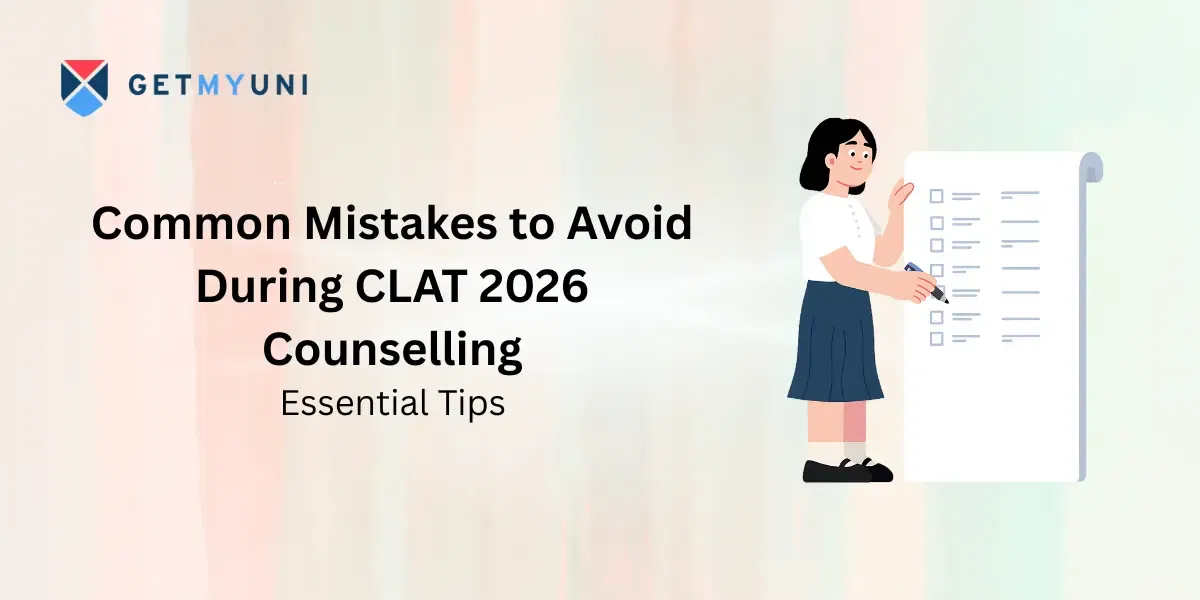Students can learn how to improve vocabulary for CLAT 2025 by reading the newspapers, magazines and other online articles, by engaging in word games, vocabulary building applications available on the internet, and participating in quizzes and flashcards.
How to Improve Vocabulary for CLAT 2025: Vocabulary is a crucial component of the English Language section in CLAT 2025, helping students score high in this part of the exam. To perform well, students must improve both their grammar and vocabulary by consistently incorporating new words into their daily practice.
A recommended approach is to study at least 5-10 new terms per day. Reading newspapers and editorials in detail can be a useful source for learning new words. Write down their meanings and practice using them in sentences to enhance retention. Using methods like flashcards can also aid in effective vocabulary building.
By strengthening vocabulary on a daily basis, students can significantly improve their chances of success in CLAT 2025. Continue reading for more tips on how to improve vocabulary for CLAT 2025.
Tips to Improve Vocabulary for CLAT 2025
Various strategies and techniques can be utilized to boost vocabulary for the CLAT (Common Law Admission Test). Here are some tips to help students to improve vocabulary for CLAT 2025 exam.
1. Read various newspapers, magazines, novels, and online articles:- This exposure to different genres and writing styles can help students learn new and unfamiliar words. Make it a habit to look up the definitions of unknown terms and understand how they are used in context.
2. Make a Word Bank- Keep a word bank or vocabulary notebook to capture new words while reading. Include the meaning of the word, as well as an example sentence. Review these words on a regular basis and try to incorporate them in writing and speaking. It is one of the best ways to improve vocabulary for CLAT 2025.
3. Make use of Flashcards- Use flashcards to memorize and practise new terms. On one side, write the term; on the other, write its definition and an example sentence. Review these flashcards on a regular basis, evaluating the ability to remember the meanings of each word.
4. Engage in Word Games- Try crossword puzzles, anagrams, word jumbles, and word searches to improve vocabulary for CLAT 2025. These games challenge interact with words while also developing their word recognition skills.
5. Use vocabulary-building apps- Quizlet, Vocabulary.com, or WordUp can help students learn and practise new terms. These apps usually feature interactive quizzes, flashcards, and word workouts to help increase vocabulary.
6. Group discussions or debates- Join group conversations or debate clubs to share and exchange ideas with other people. Not only will this improve communication skills, but also will be exposed to new and different words used by others.
7. Study Root Words- Root words, prefixes, and suffixes will help students expand their vocabulary because they frequently have similar meanings in different words. Having a solid grasp on root words might help students to improve vocabulary for CLAT 2025.
8. Practice Vocabulary Exams- Take vocabulary tests to track the progress and find areas for improvement to improve vocabulary for CLAT 2025. Many internet resources include vocabulary tests designed specifically for competitive exams like the CLAT. Frequently reviewing and taking these tests helps students become familiar with the kind of words that are usually examined. Students can also solve CLAT sample papers to get a better sense of the types of questions that will be asked on the test.
9. Emphasize Contextual Understanding- Consider the context in which the words are used. This will help students comprehend word usage and increase their understanding. Use context clues like neighboring words, phrases, or prior sentences to figure out what new words mean. Solve CLAT question papers from past years to become more familiar with the CLAT exam pattern.
10. Review Legal Terms- Because the CLAT is a law admission exam, students must be familiar with legal vocabulary and principles. Studying legal literature, journals, and cases will expose them to specialized legal language and help perform well in the exam's comprehension section.
Also Read: Critical Reasoning For CLAT 2025: Preparation, Strategy, And Tips
Best Books to Improve Vocabulary for CLAT 2025
Students can check the list of the best books to improve vocabulary for CLAT 2025.
| Name of the Book | Author/ Publisher |
| Word Power Made Easy | Norman Lewis |
| High School English Grammar and Composition | Wren & Martin |
| English is Easy | Chetan Anand Singh |
| Objective General English | RS Aggarwal |
| Barron’s Pocket Guide to Vocabulary | Barron |
Also Read: How To Balance Daily Routine For CLAT 2025 Preparation?
Common Vocabulary Mistakes to Avoid for CLAT 2025
Students must avoid these common vocabulary mistakes in the CLAT 2025 exam.
1. Relying on Memorization Alone- Simply memorizing word lists without understanding how to use words in context can limit their effectiveness. Focus on learning words through reading and applying them in sentences.
2. Ignoring Word Roots and Origins- Many words share common roots, prefixes, or suffixes. Ignoring these can make vocabulary learning harder. Understanding word origins helps in grasping meanings faster and retaining new vocabulary.
3. Overusing Complex Words- While using advanced vocabulary can enhance their writing, overloading sentences with difficult words can make them unclear or confusing. Aim for a balance between simplicity and sophistication.
4. Not Revising Regularly- Failing to review newly learned words can lead to forgetting them. Incorporate regular revision into the study routine to reinforce vocabulary.
5. Using Words Incorrectly- Misusing words can impact clarity. Students must understand the meaning and proper usage of a word before incorporating it into the writing or speaking.
Best Strategies for Attempting Vocabulary-Based CLAT Questions
Vocabulary-based CLAT reading comprehension necessitates a strategic strategy to successfully comprehend passages and accurately answer questions. Here's a step-by-step approach to improve vocabulary for CLAT:
1. Read actively- Begin by actively reading the assigned passage. Concentrate on grasping the background, major points, arguments, and perspectives offered.
2. Identify Keywords- Pay close attention to important keywords and phrases in the passage. These terms frequently convey important information and aid in answering vocabulary-based questions.
3. Infer Meaning from Context- When encountering new words, use context clues to determine their meaning. Examine the surrounding sentences to see how the passage uses the word.
4. Determine the tone and mood of the passage- This understanding can aid in determining the meaning of specific words or sentences.
5. Underline Key Sentences- Underline or highlight sentences that carry vital information. This practice aids in efficiently finding answers throughout the examination.
6. Draw Inferences- Practice making inferences and conclusions based on the information in the passage. This competence is essential for answering inference-based vocabulary problems.
7. Summarize the Passage- Summarizing the passage strengthens understanding and increases the ability to appropriately answer vocabulary questions.
8. Compare and Contrast- Consider the ideas and perspectives offered in the passage. Compare and contrast these perspectives to improve the understanding and interpretation of word meanings.
9. Recognize Synonyms and Antonyms- Look for synonyms and antonyms throughout the passage to help recognize word meanings in context.
10. Eliminate Incorrect Options- If a student is unsure about an answer, eliminate the incorrect options to increase the chances of selecting the proper answer.
Also Read: How to Attempt Legal Reasoning Questions in CLAT 2025?















